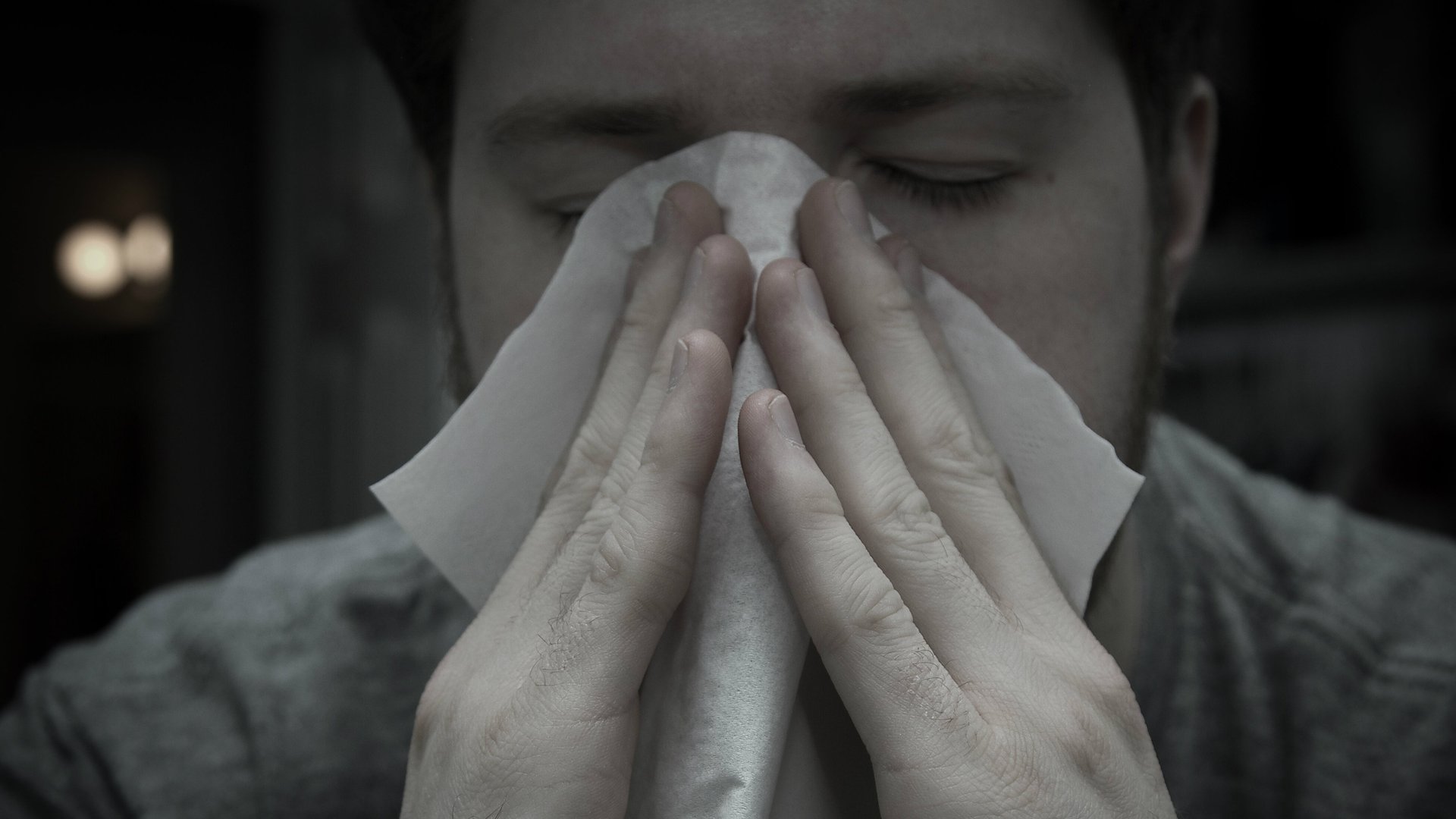Why you always get sick over the holidays
Lucky are the few who haven’t gone on a much-needed holiday only to spend their vacation hugging a box of tissues in a bed-bound Theraflu blur. So commonly do people seem to fall ill on vacation that some psychologists have christened it ”leisure sickness.” According to a leading hypothesis, during the work crunch that tends to hit right before a vacation, your immune system kicks into overdrive. Once you’re safely en route to your holiday destination, however, it lets down its guard—and a sore throat and stuffy nose soon follow.


Lucky are the few who haven’t gone on a much-needed holiday only to spend their vacation hugging a box of tissues in a bed-bound Theraflu blur. So commonly do people seem to fall ill on vacation that some psychologists have christened it ”leisure sickness.” According to a leading hypothesis, during the work crunch that tends to hit right before a vacation, your immune system kicks into overdrive. Once you’re safely en route to your holiday destination, however, it lets down its guard—and a sore throat and stuffy nose soon follow.
It sounds like a reasonable enough theory. The Dutch psychologist who coined the term documented its prevalence in a 2002 study that asked 1,900 people whether they tended to fall ill on vacations and weekends; about 3% of them said they did. Only there are no actual medical studies to back this up.
The more plausible reason so many of us seem to wind up vacationing in a sickbed? Travel itself.
“Whether influenza, the common cold, or other viruses, it’s really quite clear that mass transportation contributes to transmission,” says William Schaffner, a professor of preventive medicine at Vanderbilt University Medical Center. “It’s not the only way, but it’s a major way.”
Once temperatures drop, we start encountering influenza and the scores of common cold viruses in our daily lives at a much higher rate. (Though scientists aren’t totally sure why, these viruses thrive in cold weather.)
While flu activity in the US tends to peak in February, says Schaffner, it varies a lot. In 2009 and 2013, outbreaks got going as early as November. The chart below shows the level of outpatient activity for patients with flu-like symptoms based on US Centers for Disease Control and Prevention tracking:
These viruses are thought to spread through cough- and sneeze-borne droplets, through inhalation, or when we come into contact with surfaces on which they land and then touch our eyes, nose, mouth, or other mucous membranes. As these bugs circulate a local area during cold months, we build up antibodies that help us fight off those viruses throughout the rest of the season.
Our immune system’s defenses don’t help much in an airport, though, where new viruses from all over the planet abound. Worse, you’re likely getting much nearer than usual to these germ-ferrying fellow travelers—and for unusually long periods of time.
The aircraft cabin is an obvious example, though the air conditioning system prevents most germs from cycling through the cabin. Still, those sitting within a two-seat radius of a sick passenger—two seats in front, behind, and to the side—stand a greater chance of catching the bug. The cabin air’s relatively low humidity also promotes transmission, says Schaffner.
But cabins are hardly the only source of risk. The flu and common cold viruses spread more easily in any crowded area. Travelers also spend a long time in close contact with each other while in line at security, waiting at the gate, and while boarding the plane. While there’s minimal research on other forms of mass transport, they likely present similar transmission dynamics.
As it happens, a cold virus itself doesn’t send mucus streaming from your nose and make your head feel huge. Instead, your body’s battle against the virus inflames tissue, causing these and other common cold symptoms. Normally, the stress hormone cortisol helps keep your body’s inflammation in check. When a person is worn down by chronic stress, however, the body responds less and less to cortisol. The runaway inflammation that results makes for more extreme cold symptoms.
“The explanation seems sensible in that stress will cause release of corticosteroids and they may help us during the stressful period but they may also lower our resistance to infection and maybe this is a delayed response,” says Dr. Ronald Eccles, director of Cardiff University’s Common Cold Centre, who has been asked about the phenomenon from time to time.
Is that a slam-dunk argument in favor of the “leisure sickness” phenomenon? Not exactly.
Research by Sheldon Cohen, a psychology professor at Carnegie Mellon University and pioneer in the study of the effects of stress on the immune system, has shown that enduring chronic stress or an acutely stressful event—including work-related experiences—leaves one’s body more vulnerable to cold viruses. “However,” Cohen says, “I’m not aware of any evidence that people are more susceptible to disease post-stressor.” He adds that the psychological effects of extremely stressful events may linger long after the cause itself recedes.
It’s possible some psychological biases are at play as well.
“I’d guess that people remember illnesses during vacations better than those that occur during more regular work schedules,” says Cohen, adding that these incidents might not actually be more prevalent. And as Vanderbilt’s Schaffner points out, we don’t hear from stressed-out masses who don’t get sick on their vacations.
Regardless of your belief in “leisure sickness,” the best thing to do for your immune system is to get an annual flu vaccine, says Schaffner. Those that haven’t yet might want to get cracking. The strain that seems dominant this year “is on the severe end of the spectrum,” he says.